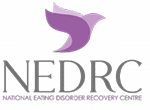National Eating Disorders Recovery Centre
First in Eating Disorders
Eating Disorders:
The Journey to Recovery
The journey to recovery from an eating disorder is different for everyone. There is no set definition of what recovery is, but it generally involves challenging and overcoming the beliefs and behaviours associated with the illness, and developing healthier ways of eating, thinking and behaving.
There is no set time for how long recovery will take. The length of recovery will depend on a number of factors, including the treatment and support received. Evidence shows that the sooner you start treatment for an eating disorder, the shorter the recovery process will be.
Sometimes it may feel that recovery is slow or even impossible. However, with the appropriate treatment and support, and a high level of personal commitment, recovery from an eating disorder is definitely possible.
The moment you decide you want freedom more than your disorder, recovery becomes possible.

A new chapter
Letting go of an eating disorder often triggers a great deal of uncertainty and fear. Recovery will open a new chapter in your life, one in which you can hopefully find joy and peace and look forward to life, whether than means finishing school, going to university, embarking on a new career, fostering a new positive relationship or becoming a parent.
People who have recovered from an eating disorder often speak about how much stronger their relationships with their friends and family became after working through the treatment together. Often people feel that they have a much better understanding of themselves and have grown as a person through the recovery journey.
Some people claim their experience of an eating disorder as part of their story, and not something that must be overcome and forgotten.

“They may forget your name, but they will never forget how you made them feel”
Families are an important part of the recovery process and we encourage their participation but only with your consent. We also understand that not everyone has a relationship with their family and would not force this connection.
About Us
The National Eating Disorders Recovery Centre (NEDRC) supports a realistic view to health and weight. We incorporate WHO, NICE, MARSIPAN and the HSE Model of Care for Eating Disorders guidelines along with elements of Health at Every Size (HAES) principles, Intuitive Eating and Therapeutic Movement. We approach each individual with a holistic view, using the Medical, Therapeutic, Psychosocial and Recovery models.

Start your recovery journey today
Give us a call to schedule an appointment.
Phone: 01 564 4450 / 087 7755996




